The Myers-Briggs Personality Types in Haikyuu!!
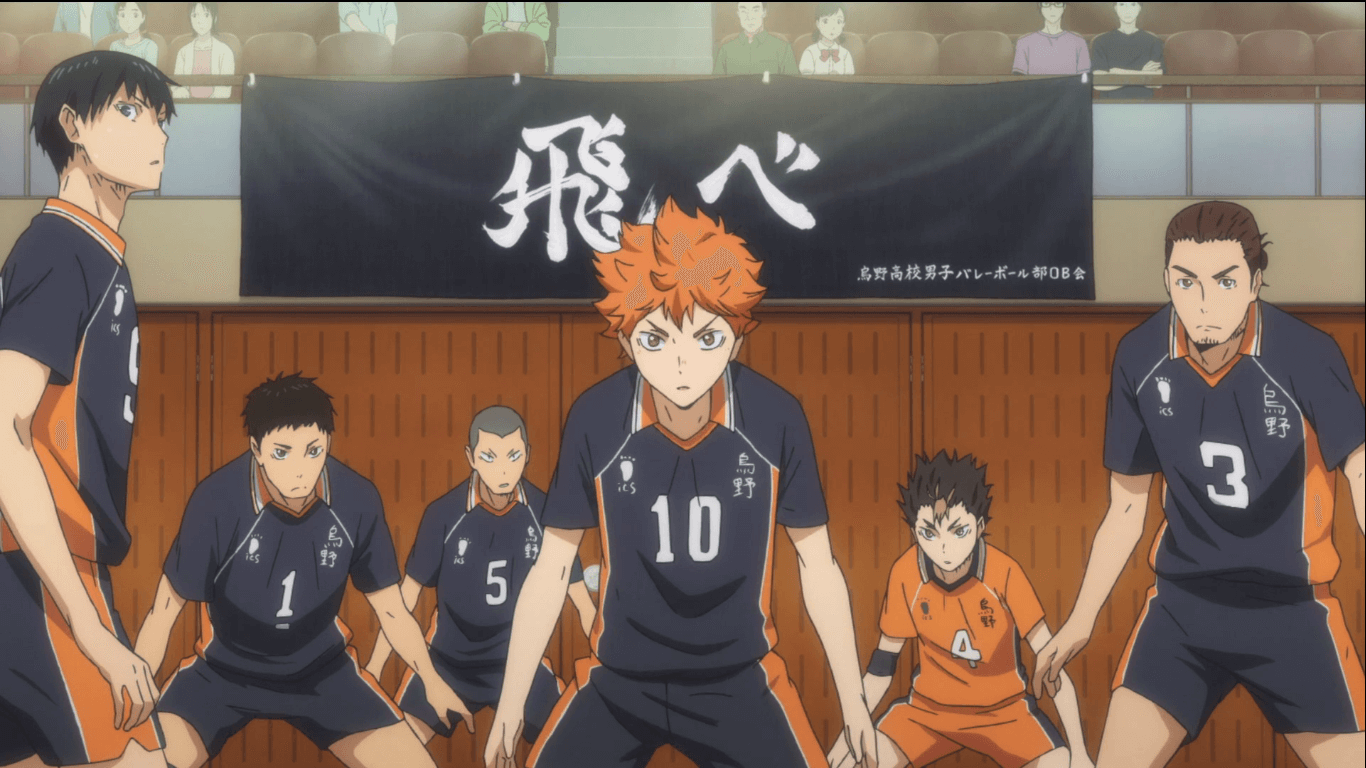
There a quite a few prominent characters in Haikyuu!!, which can make it tricky to identify their specific Myers-Briggs personality types (colloquially referred to as MBTI). After all, the more characters a show has to switch between, the less specific development each character gets. With that being said, I formed theories on the majority of the members of the main volleyball team, which I’ll present in brief below. Some of these characters, like Kageyama and Hinata, have individual MBTI personality type analyses written about them, which will be linked to in their sections. Feel free to share your thoughts in the comments!
The Myers-Briggs Personality Types in Haikyuu!!
Tobio Kageyama – ESTJ
“The setter is the team’s control tower. Plus, it’s the position that gets the most contact with the ball. It’s the greatest position there is because you get to be the ruler!”
Tobio Kageyama prefers to be in control. In middle school, he earns the unwanted title of “King of the Court”, because he’s essentially a domineering, power-tripping dictator. He often makes impossible demands of others, and berates them for any failure. As the series progress, Kageyama learns how to work better with others, and pay attention to how his teammates are doing. Of course, as an ESTJ, Kageyama highly values experience. He can struggle to take risks or try new things when the stakes are high, especially when the risk is not his idea. Many identify him as an ISTJ because of this. However, Kageyama is willing to trust his own hunches, and he excels at making decisions on the fly.
Read More: Myers-Briggs Types in Haikyuu!!: Tobio Kageyama (ESTJ)
Shoyo Hinata – ESFP
“I’m grateful for any set that comes my way! I just want the ball. I’ll jump anywhere. I’ll hit any ball. Believe me! Give me a set and I’ll hit it!”
Shoyo Hinata is passionate, energetic and enthusiastic. He wants nothing more than to play volleyball, and he pursues this dream in spite of not having a team to play on during middle school. Once in high school, he makes up for the loss with endless practice and determination. Hinata is impulsive, and quick to act. Sometimes, this gets him into trouble, such as when he starts fights or barges into a training camp that he wasn’t invited to. However, Hinata usually gets along well with others, being naturally friendly and encouraging. Although, he has a strong competitive streak, even with his own teammates. He’s determined to be the best volleyball player and to win every single game that he plays.
Read More: Myers-Briggs Types in Haikyuu!!: Shōyō Hinata (ESFP)
Daichi Sawamura – ENFJ
“Anyone who lets a petty rivalry get in the way of the team’s success, gets the boot. You two are banned from participating in club activities until you learn how to think of each other as teammates.”
Daichi Sawamura acts like the dad of the team, which is somewhat fitting since he is the team’s captain. Daichi looks out for everyone’s wellbeing and knows how to encourage and influence them. In addition, Daichi concerns himself greatly with keeping the peace and ensuring team cohesion. He can get forceful and scary (according to some) when certain lines are crossed, such as when a fight is about to break out. He’ll take immediate, decisive action to rein people in or to end an altercation. Throughout the series, Daichi is often shown analyzing people’s individual potential. He’s future-focused and somewhat idealistic, with his deeply held belief that one day the team would make it to nationals.
Read More: Myers-Briggs Types in Haikyuu!!: Daichi Sawamura (ENFJ)
Koshi Sugawara – ISFJ
“I panic whenever I have to do something outside my comfort zone, but we can’t win if we don’t take risks. Persistent attacks are what we do.”
Koshi Sugawara is observant, analytical, and encouraging. He’s good at tracking the emotional states of others, and basing his in-game decisions off of how it will affect his teammates. When Kageyama joins the team, Sugawara gets benched for the majority of every game, as the inferior setter (a decision that he accepts gracefully). However, he’s usually swapped in when the team needs a morale boost. Throughout the series, Sugawara is shown to be good at analyzing others, and strategizing from the sidelines. By his own admission, he struggles with making decisions on the fly. In addition, Sugawara is easy to read, known for playing it safe, and gains comfort from his routines.
Ittetsu Takeda – INFJ
“When you mix colors, they get muddled and lose what they once were, but when they’re all mixed together, it turns to black, a color that cannot be changed. And that’s us! Black! Like the crows we are!”
Ittetsu Takeda likes his metaphors. He returns to the crow metaphor continually, incorporating it into his speeches to the team. Takeda is excited by the potential that he sees in the team. He sees everyone as a cog in the machine, that, if aligned properly, can become unbeatable. Throughout the series, Takeda works his hardest to get them as many opportunities as possible. The primary way in which he does this is by rebuilding the team’s affiliation with old rivals, an effort which proves to be invaluable. When dealing with others, Takeda is caring and empathetic. Even when reprimanding Hinata, Takeda expresses that he understands where Hinata is coming from, in spite of disapproving of his actions.
Keishin Ukai – ISTP
“Ok, to put it bluntly, Seijo is a really bad match up for you guys. I mean, they’re poised and they adapt. That’s just not something you respond well to. Sack up! You’ll have to overcome it. Be more than what they expect you to be!”
To be frank, Coach Ukai is not fleshed out much, but ISTP seems most likely. Initially, he presents as somewhat lazy and unmotivated, content to work at a convenience store. When asked to coach the team, Keishin Ukai is hesitant, because he doesn’t view himself as the coaching type. However, he eventually yields and gets involved. As a coach, he’s blunt and analytical, not afraid to be straightforward with the players or to make difficult decisions that may hurt feelings. While he’s competitive and certainly want to win, he doesn’t focus on passion (or encouraging them to dip into their passion) as a way to motivate the team. Rather, he focuses on analysis and strategy, encouraging his individual team members to hone their individual skills and take advantage of every opportunity afforded to them.
Kei Tsukishima – ISTJ
“I like to do things my way, so please, be consistent.”
Kei Tsukishima initially presents as smug and condescending. He’s observant, calm under pressure, doesn’t trust his instincts, and prefers to do things his own way. He’s quite rigid in that regard, refusing to yield to others when the circumstances are in his control, like when he agrees to help tutor but will only do so at specific times of the day. Tsukishima struggles with lacking passion, especially in regard to volleyball. He views it as a stupid game, something that will only hurt him if he gets too involved in it, like it hurt his brother. As a result, he lacks ambition, believing that pushing to be the best is pointless. After all, there will always be someone better, someone with more experience. Eventually, Tsukishima has his defining moment, and learns to love the sport.
Asahi Azumane – INFP
“You can do this, man. Actually, I can’t guarantee that. I mean, his serve is so intense that even you’re having trouble with it… It’s awesome. Yeah, I’m sorry. I completely suck at encouraging other people. I’m too busy dealing with my own stuff. I’ll just deal with me. No matter what the pass. I’ll get points.”
Asahi Azumane gets very little development, so I struggled to peg this guy. While he’s generally focused on feelings, Asahi focuses more on his own feelings, and how things impact him personally. At one point, he walks up to a teammate to encourage him, and instead ends up rambling about how awesome the opponent’s serve is and how he sucks at being encouraging. Throughout the series, Asahi proves himself to be very sentimental, often wanting to reminisce with his close friends. In addition, he struggles with self-confidence, being prone to doubting his own capabilities and freezing up, as a result. Due to a bad in-game experience, Asahi abandons the team (prior to the start of the show), and it’s a challenge for his former teammates to get him to give volleyball another chance.
Yu Nishinoya – ESFP
“We can’t grow if we shy away from challenges. We need to face them head on.”
In many ways, Nishinoya is very similar to Hinata, although perhaps a bit more intense. Nishinoya is very energetic, talkative, and loud. He loves being in the middle of the action, and often follows his impulses. (When he learns that Hinata snuck into the training camp, he thinks it’s absolutely hilarious.) Nishinoya makes cracks about being the star of the show, as the team’s libero. He’s extremely committed to his role, expressing constant determination to receive every ball that comes his way. However, while typically friendly and sincere, Nishinoya does struggle to filter his words, resulting in the occasional tactless or rude remark.
Ryunosuke Tanaka – ESTP
“So, not everyone on a team is the same type of person, you know? You see, I like to jump right into things while other people out there are pathetic little wimps.”
Ryunosuke Tanaka is another one of the impulsive team members. He’s constantly getting into fights with those who look down on him or his team. According to Coach Ukai, Tanaka takes the bait every time someone pushes his buttons. Daichi is constantly having to pull Tanaka out of intense situations, or tell him to behave. However, this partly because of Tanaka’s loyalty to the team. He’s supportive of his teammates, encouraging, and reasonably perceptive when it comes to other people’s emotions. When speaking, Tanaka is usually straightforward and pointed, sometimes to the point of being rude or blunt. However, he usually realizes (mid-statement) when he’s been rude and will backpeddle with an apology before continuing. He encourages people to play to their strengths, do what they can in the moment, and figure out the rest later.
Kiyoko Shimizu – ISTP
“You don’t need to have strong feelings about it, or be on some kind of mission from day one.”
Kiyoko Shimizu is a rather quiet individual, who often only talks when prompted. Most identify her as an ISTJ, probably because she’s the team’s manager. However, she doesn’t actually portray any need to control or optimize her environment, beyond fulfilling her basic duties. In fact, Kiyoko never has a specific desire to be a team manager. Rather, she does it more on a whim, after being injured in track. Kiyoko even tells Hitoka Yachi that the best things are the ones you fall into. Generally speaking, Kiyoko can be somewhat blunt, but she usually strives to be supportive and encouraging. For instance, when the third year students talk about asking the gods for help at the shrine, she flatly states that “asking the gods for help doesn’t automatically mean they’ll let you win.” However, she follows this up by saying, “Don’t worry guys. We’ll be fine. I’m certain we will.” In spite of her aloof nature, Kiyoko proves her loyalty to the team over and over again, doing whatever she can to contribute to their success.
Hitoka Yachi – INFP
“I ended up standing next to such a beautiful girl for nearly two minutes…! What should I do if her fans try to kill me?!”
Hitoka Yachi is a genuinely kind person, although she has a widly overactive imagination. The smallest thing will trigger her to make wild assumptions or invent all kinds of paranoid scenarios. As a result, she can come off as a bit eccentric, or at least, easily flustered. She tends to be easily distracted and lost in her own thoughts. Hitoka Yachi struggles with low self-esteem and underestimating her own capabilities. When give the opportunity to join the Volleyball Club, Yachi initially struggles because she has no experience with volleyball and no personal connection to it. However, the longer she’s involved, the more she wants to stay. Overtime, Yachi grows more confident in herself and her abilities, in addition to becoming more assertive in pursuing what she wants.
Hi there! If you enjoyed that article, leave us a quick comment to encourage us to keep writing, and check out our Updates and Current Projects. In addition, if you've found our content helpful, please consider Buying Us A Coffee to help keep this website running. Thank you!
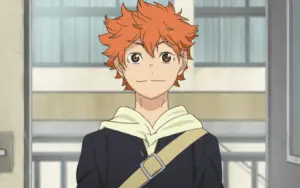
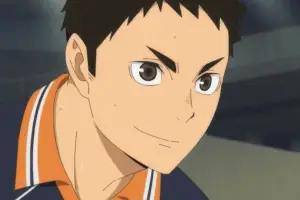
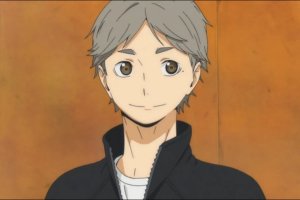
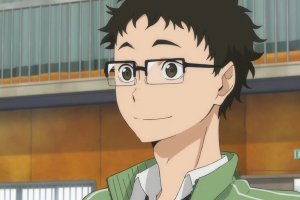
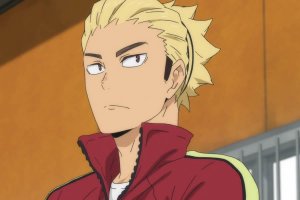

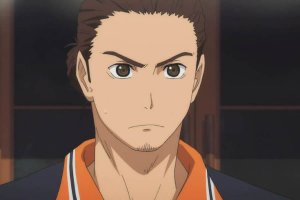
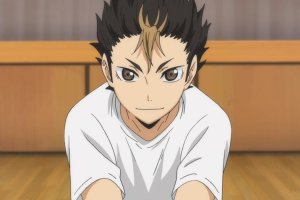
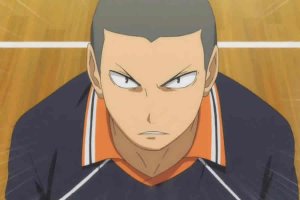

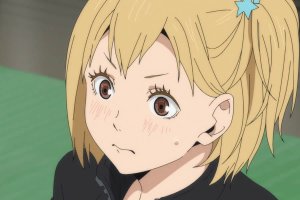

Nice article, but I still don’t understand why Yachi is typed as an INFP. I don’t think she primarily uses Fi. I hope it’s not just because she has an overactive imagination, which is being interpreted as Ne. Is imagining and worrying too much really a Fi-Ne trait? I thought she used Ne as her inferior function. Can you explain how inferior Ne and auxiliary Ne work?
Keeping in mind that this character had little development… Her scenarios are extremely detached from reality, like being mobbed by Kyoko’s fans or assuming that “watch out for strays” in a gym meant bullets. She acts on these scenarios when she’s first introduced, like creeping around to hide from someone she’s invented something about, and ends up having to apologize for her wild assumptions. It’s a constant thing for her that pulls her out of the moment and distracts her. Someone doesn’t have to have low Ne to use it to catastrophize. I would expect an Si dominant’s assumptions to be more based on reality or some form of personal experience. (This is not including having a generally fantastical imagination – any type can have that, but hers is blurring into reality and impacting her daily actions. Imagination is winning over practical experience.)
Then, what about Fi?
Honestly, there’s very little specific evidence of either feeling function given how little focus is put on this character. People probably want to argue conflict avoidance and empathy as Fe evidence, but that often applies to both feeling functions. Her initial struggle to join the team seems Fi-Si to me, because it’s not just about lacking experience, but lacking the same degree of passion that everyone else has. Everyone is thrilled that she’s there, but she can’t fully get on board with joining the team until she feels more of a personal connection with it.
I get it. Thanks! Maybe I just got a bit too worked up because I didn’t like how people treat infps as delusional crybabies.
I just noticed this show almost has a complete set of both high sensing users:
Se: 2 ESFPs, 2 ISTPs and one ESTP.
Si: An ESTJ, ISFJ and ISTJ.
If they had an ISFP and an ESFJ respectively we’d have two complete sets, hahaha.
Hi mara! Im curious why you typed kei as istj? Ive always thought of him as istp …but im sure you have reasons…thanks
Doesn’t trust his instincts (anti-Se), doesn’t actually like volleyball but plays anyway (low Fi), whines about being a lowly commoner (status focus indicative of Te), generally presents as inflexible…